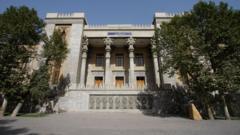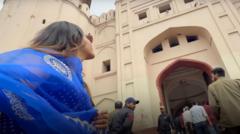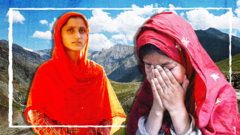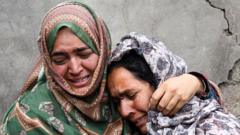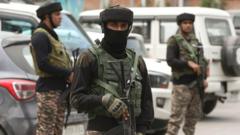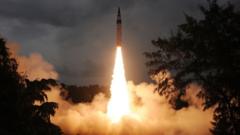In a significant development in India's ongoing struggle against Maoist insurgency, a high-ranking leader has been killed during a confrontation with security forces in Chhattisgarh, marking a crucial turning point in the decades-long conflict.
Maoist Insurgency Faces Setback as Top Leader is Killed in Chhattisgarh Clash
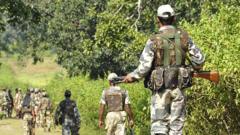
Maoist Insurgency Faces Setback as Top Leader is Killed in Chhattisgarh Clash
Indian security forces target Maoist rebels in significant military operation
A key figure in the Maoist rebellion, Nambala Keshava Rao, known as Basavaraju, was killed during hostilities in India’s central state of Chhattisgarh, according to Home Minister Amit Shah. Rao, along with 26 other rebels, was reported dead following a fierce battle that also claimed the life of one police officer. This incident marks the first elimination of a Maoist leader of Rao's stature in thirty years. The long-standing insurgency, fueled by grievances of neglect from the Indian government, has drawn several military responses, including the new initiative codenamed “Black Forest” aimed at dismantling support for the rebels.
Rao, who operated under the umbrella of the outlawed Communist Party of India (Maoist), was listed as one of India’s most wanted individuals due to his active role in the insurgency that began in the late 1960s. Additional actions following the conflict have reportedly led to the arrest of 54 rebels and 84 surrenders across Chhattisgarh, Telangana, and Maharashtra. While Prime Minister Narendra Modi publicly acknowledged the triumph of Indian forces, the Communist Party condemned the violence and demanded an impartial investigation into the events. With tensions high and negotiations on the horizon, the Maoists have expressed willingness for dialogue contingent on the cessation of military operations, though officials have stated that any discussions would require unconditional terms.
Despite recent military successes, the Maoist insurgency remains potent, with violence continuing to claim lives and holding sway over significant regions known as the "red corridor" across much of India. Government data indicates that approximately 287 rebels were killed last year alone, reinforcing the long-standing severity of this conflict.






